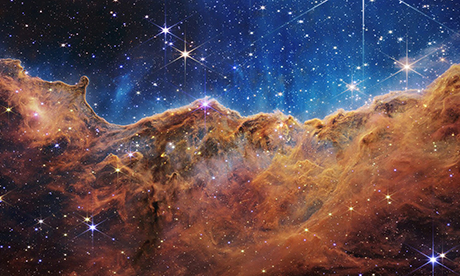The Vatican Observatory will host a conference bringing together prominent physicists to discuss the mysteries of the cosmos.
The meeting will also honour Georges Lemaître, the priest who first proposed the Big Bang theory.
The event, scheduled for 16-21 June, will feature 40 leading experts in cosmology, relativity and quantum theory. The gathering aims to foster dialogue and find common ground between these often-conflicting scientific fields.
“We think we have put together a dream team that we vehemently hope will lead to some innovative thinking” said Fabio Scardigli, a theoretical physicist from the Polytechnic Institute of Milan and one of the event’s organisers.
Established in 1891 by Pope Leo XIII, the Vatican Observatory, known as Specola Vaticana, seeks to promote dialogue between faith and science.
The conference is part of this ongoing mission.
Key participants include:
- Nobel laureates Adam Riess and Roger Penrose
- Andrei Linde and Joseph Silk, pioneers in cosmology
- Wendy Freedman, known for her research on the universe’s expansion
- Licia Verde, an expert in dark matter and energy
- Cumrun Vafa, renowned for his studies in geometry and quantum physics
- Edward Witten, a leading figure in string theory
Openness to reflect
On 19 June, participants will meet with Pope Francis who is expected to deliver a speech.
Brother Guy Consolmagno, the director of the Vatican Observatory, highlighted the Church’s historical contributions to physics.
“I was a scientist for 20 years before I joined the Jesuits, and the most common reaction from fellow scientists was a freedom from them to tell me about the churches they belong to” he said.
Consolmagno also noted that there is an openness to reflect on existential questions in fields like cosmology.
The observatory in Castel Gandolfo offers a neutral ground for scientists to engage in unencumbered dialogue.
“It’s a place where scientists, researchers and academics can feel free to speak unencumbered by academic structures where they are bound to one type of theoretical current or another” said Rev. Gabriele Gionti, the observatory’s vice- director.
Hubble-Lemaître Law
In 2022, Gionti and Rev Matteo Galaverni, a priest from Reggio Emilia-Guastalla, proposed a new way to study gravity after the Big Bang. Their work was well-received in the scientific community, emphasising the ongoing relevance of the Vatican’s scientific contributions.
Georges Lemaître, born in Belgium in 1894, was a significant figure in physics and theology. His early work on the expanding universe laid the groundwork for what would later be known as quantum gravity.
Despite initial opposition from Albert Einstein, Lemaître’s theories have gained recognition, with the International Astronomical Union renaming the Hubble Law to the Hubble-Lemaître Law in 2018.
Quoting St John Paul II, Consolmagno stated “Truth is the goal, and for those of us who believe that God is the truth, exploring the truth leads us closer to God”.
The conference seeks to build on Lemaître’s legacy, bridging gaps between diverse scientific theories in pursuit of a deeper understanding of the universe.
Sources
Additional reading
News category: World.




